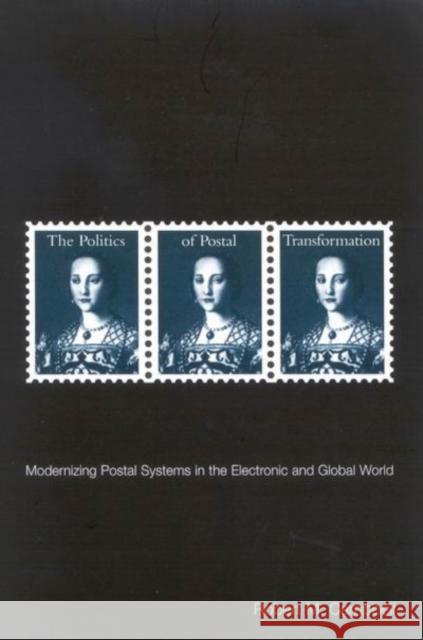The Politics of Postal Transformation: Modernizing Postal Systems in the Electronic and Global World » książka
The Politics of Postal Transformation: Modernizing Postal Systems in the Electronic and Global World
ISBN-13: 9780773522848 / Angielski / Twarda / 2002 / 560 str.
The Politics of Postal Transformation: Modernizing Postal Systems in the Electronic and Global World
ISBN-13: 9780773522848 / Angielski / Twarda / 2002 / 560 str.
(netto: 466,45 VAT: 5%)
Najniższa cena z 30 dni: 483,79
ok. 22 dni roboczych.
Darmowa dostawa!
The postal sector is a multi-billion dollar set of activities that touches billions of lives daily and continues to be one of the world's largest employers. Until recently all Posts were monopolies owned by governments in order to maintain a universal postal service. However, in response to technological and international competition as well as public disenchantment with postal subsidies and inefficiencies, governments have embraced a range of new strategies. In The Politics of Postal Transformation Robert Campbell investigates and analyses the most important policy innovations in recent years as countries struggle to create a postal regime that matches domestic political expectations with international and technological realities. Through extensive interviews with numerous key government, regulatory, postal, and union officials in North America, Europe, and Australasia, he identifies four models or strategies, each reflecting particular national characteristics and ambitions: from privatization (Netherlands, Germany) and deregulation (Finland, Sweden, New Zealand) to increased national support (France) and mixed strategies (UK, Australia). Campbell's comparative analysis provides a backdrop for a set of recommendations for policy-makers and lays the foundation for informed speculation about future international postal developments and the possible domination of the system by a select group of postal behemoths.











